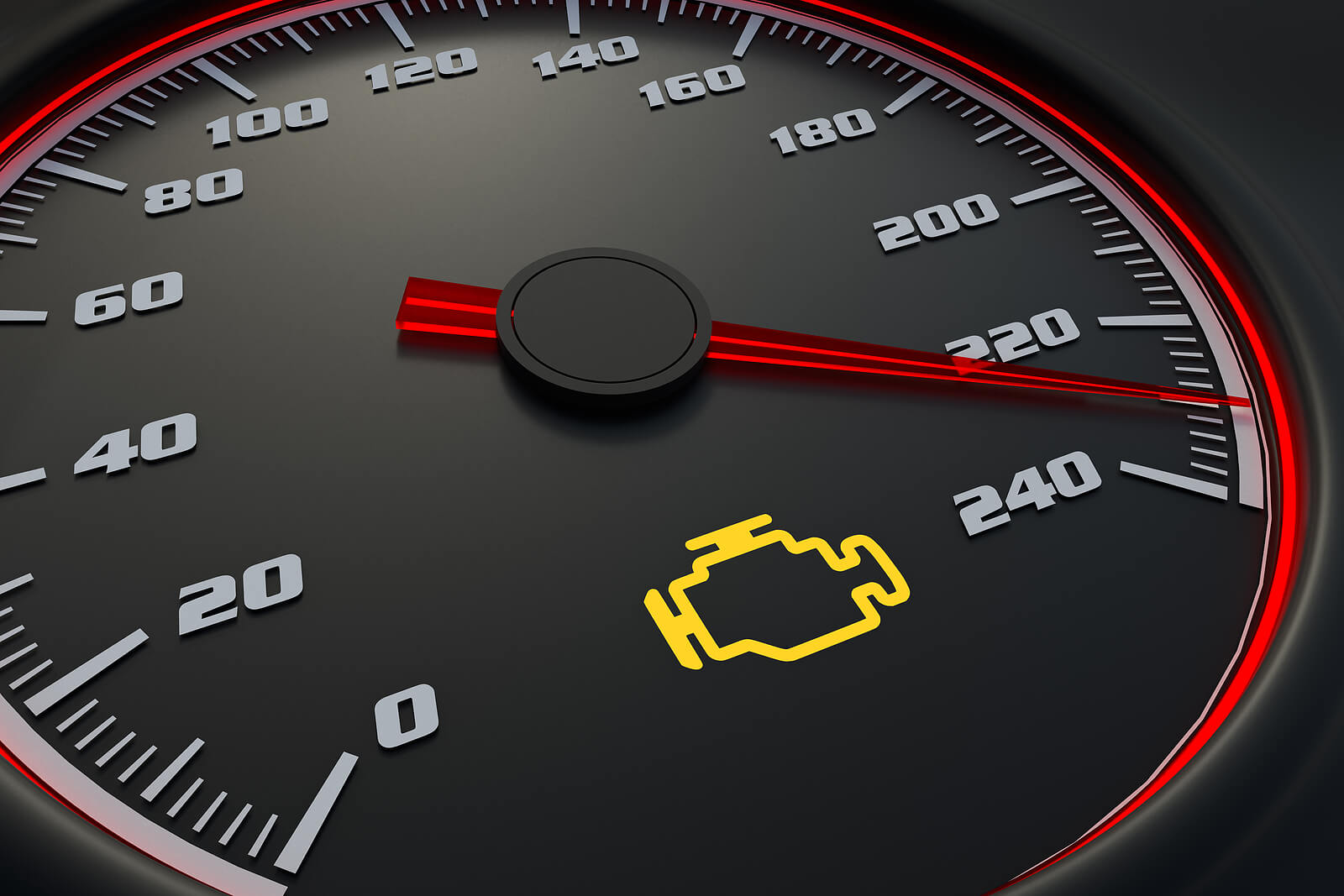The check engine light — also known as the malfunction indicator lamp — is a warning sign from the car’s engine computer that something is wrong.
Automakers started standardizing their systems with 1996 model-year vehicles under a protocol called OBD-II, which instituted a list of diagnostic trouble codes and mandated that all cars provide a universal connector to access this information. The connector is usually located under the steering column. Before 1996, carmakers had their own engine diagnostic systems, primarily to ensure their cars were compliant with EPA pollution control requirements.
Check engine lights typically come in orange, yellow or amber, depending on the manufacturer. If the light begins flashing, however, it indicates a more serious problem, such as a misfire that can quickly overheat the catalytic converter. These emissions devices operate at high temperatures to cut emissions but can pose a fire hazard if faulty.
Reasons Why Your Check Engine Light Turns On
- Faulty Oxygen Sensor
The oxygen sensor (sometimes called an O2 sensor) measures the amount of unburnt oxygen in a car’s exhaust system A malfunctioning sensor wont accurately measure oxygen in the exhaust to inject the proper amount of fuel to the engine, potentially causing a vehicle to lose up to 40% off its gas mileage.
- Loose Gas Cap
A loose fuel cap is one of the most common reasons why the check engine light turns on. A loose or damaged gas cap can cause vapor leaks and trigger fuel system sensors
- Faulty Catalytic Converter
The catalytic converter is integrated into a vehicle’s exhaust system. It turns the carbon monoxide generated during the combustion process into carbon dioxide.
- Bad Spark Plug
Worn or fouled plugs can cause a variety of issues including an engine misfire and hesitation under heavy acceleration. Bad or damaged spark plugs means your car is not firing on all cylinders and can cause low gas mileage and potential engine damage.
- Bad Spark Plug Wires
Spark plug wire transfers electricity from the coil to the spark plug. Without it, the fuel and air mixture in the cylinders would not ignite. Symptoms of bad spark plug wires include rough idle, noticeable drop in engine performance, and lower gas mileage.
- Faulty Ignition Coil
An ignition coil generates the electricity the spark plugs need to ignite the fuel and air mixture in the cylinders. With a malfunctioning ignition coil, there can be no spark to run the engine. Coils can go bad through age or operating in high temperatures.
- Bad Mass Air Flow Sensor
The mass airflow (MAF) sensor monitors the amount of air that enters the engine. It is a part of the engine-management system, so your car wouldn’t be able to adjust to changes in altitude without it. Symptoms of an MAF failure include a rough idle, stalling, trouble starting, or a sudden change in the position of the throttle pedal.
- Non-Compatible Aftermarket Alarm
Aftermarket alarms can cause havoc on your car if it’s not installed properly. It can drain the battery, trigger the check engine light, or even prevent the vehicle from starting.
- Leaky Vacuum Hoses on Evap System
Leaky hoses cause evaporating fuel to not reach its vented destination.
- Faulty Exhaust Gas Recirculation Valve
The exhaust gas recirculation (EGR) valve lowers the amount of nitrogen oxide that comes out of the car’s engine and helps it run more efficiently. It directs the hot exhaust gases back into the combustion chambers, which warms up the fuel and makes it easier to burn. It also reduces emissions. The EGR valve can get clogged up or fail entirely.
- Bad Battery or Charging System
Battery is a very basic yet essential component in the car. Without it, your car will not start, light up the road ahead, or turn on the radio. Advanced monitoring systems can detect problems with your car battery
The check engine light provides a warning — sometimes precise, sometimes vague — of what’s wrong with a car. However, it does not replace a skilled mechanic or routine maintenance.
It’s important to address problems indicated by the light promptly. Ignoring them could lead to larger, costlier problems later.
At Angel’s El Toro Transmission, honesty, integrity, and the quality of our work have been the foundation of our success. Your complete satisfaction will always be our main concern.
Angel’s Transmission and Auto Repair has been serving clients in Mission Viejo and nearby communities for over two decades. Our technicians are continuously training to stay updated on the latest information and technology. The skilled and certified technicians average 20 years of experience in the Automotive Repair Industry.
Call us (949) 587-9060 for an appointment or fill out our contact form and let us help you with transmission repair services or general auto repair.
References
https://www.edmunds.com/car-maintenance/what-your-check-engine-light-is-telling-you.html
https://www.digitaltrends.com/cars/check-engine-light-explanation/



